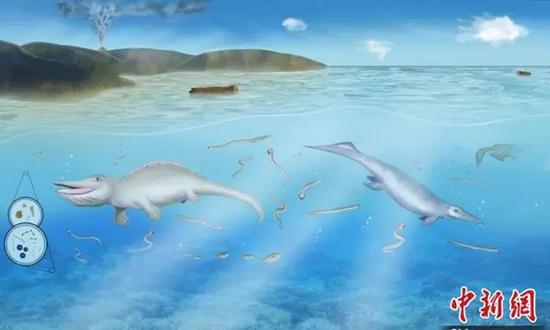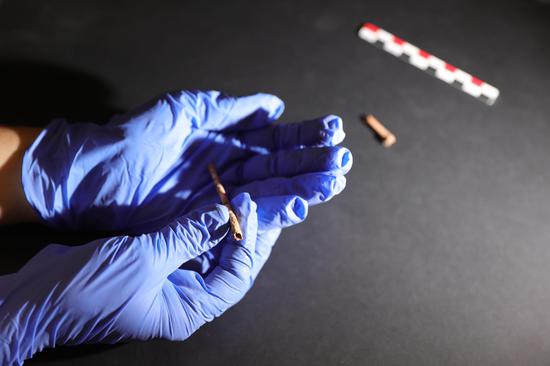
A Chinese archaeological team has uncovered the fossilized teeth of an animal that lived during the Early Triassic era in what is today Hubei Province. The discovery is the first of its kind in China.
The fossil was discovered in the marine reptile fossiliferous sediment in Yuan'an county, Central China's Hubei Province, by the Wu Kui research team under the Hubei Geological Bureau. Researchers have identified the fossil as belonging to the Nanzhang-Yuan'an fauna, China News Service reported on Monday.
The Early Triassic dates back to about 250 million years ago.
Nanzhang-Yuan'an fauna make up some of the earliest marine reptile fauna known on Earth and encompass unique species like Hubei crocodile, ichthyosaurs, sauropterygia and saurosphargis.
The group are examples of the earliest terrestrial animals to migrate to the sea. However, fossils from these animals are rare finds.
Led by Wu, the archaeological team have collected samples and conducted research into the Nanzhang-Yuan'an fauna since 2017. The team discovered a large amount of specimens in the fossiliferous sediment in the region in January.
The team's latest research has identified a species of lower animals in the Nanzhang-Yuan'an fauna that sets the community apart from the Chaohu Lake fauna of Anhui Province, Balinese fauna of North America and Svalbard fauna of Europe, according to Wu.
The research, jointly conducted by paleontologists with the Hubei Geological Bureau and Hubei Key Lab of Paleontology and Geological Evolution, has offered fresh clues concerning the features and significance of the Nanzhang-Yuan'an fauna.
Some of the results of the research have been published in the Geological Journal.


















































 京公网安备 11010202009201号
京公网安备 11010202009201号